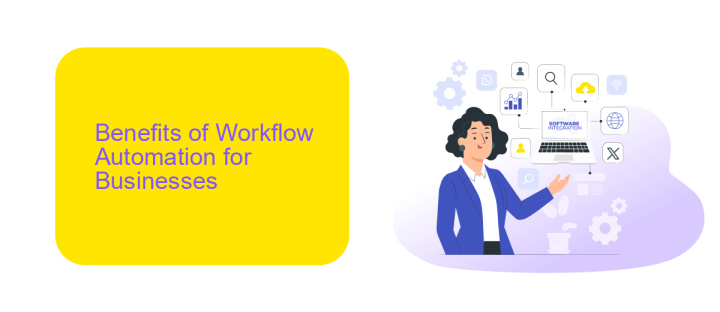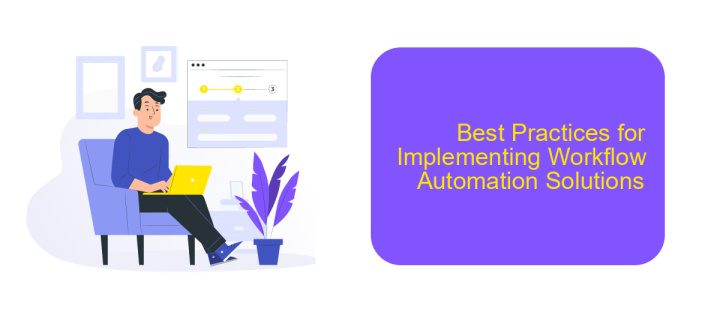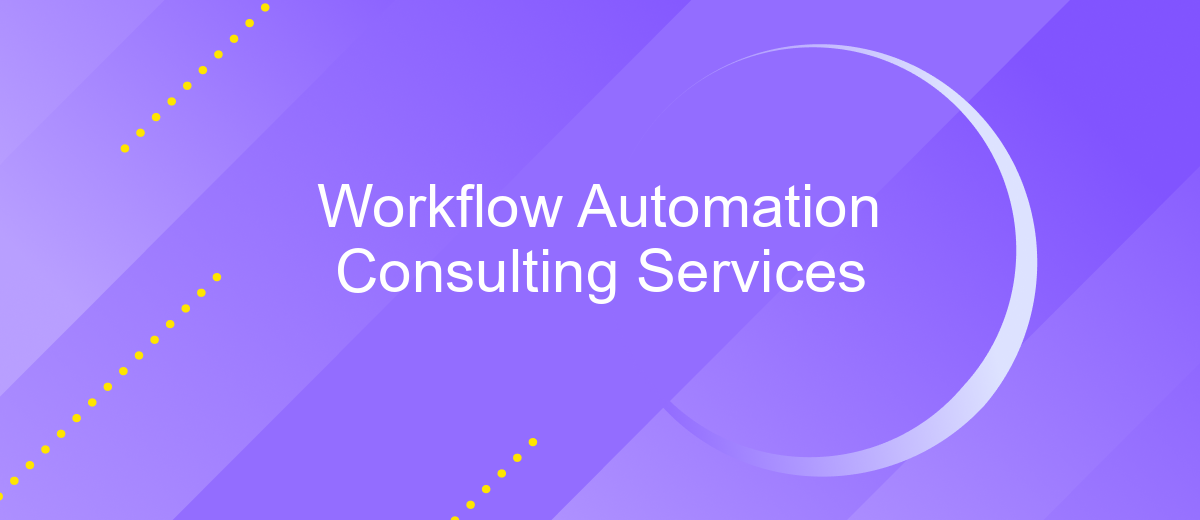Workflow Automation Consulting Services
In today's fast-paced business environment, optimizing efficiency is crucial. Workflow automation consulting services offer tailored solutions to streamline operations, reduce manual tasks, and enhance productivity. By leveraging advanced technologies and expert insights, these services help organizations achieve seamless workflows, allowing teams to focus on strategic initiatives and drive growth. Discover how workflow automation can transform your business processes and elevate your success.
Introduction to Workflow Automation Consulting Services
Workflow automation consulting services are designed to help businesses streamline their processes, reduce manual tasks, and increase overall efficiency. By leveraging advanced technologies and expert insights, companies can optimize their workflows, leading to enhanced productivity and cost savings.
- Identify and analyze existing workflows
- Implement automation tools and software
- Integrate various systems and applications
- Provide training and support for seamless adoption
- Continuously monitor and improve automated processes
One of the key aspects of workflow automation consulting is the integration of different systems to ensure a smooth flow of information. Services like ApiX-Drive can play a crucial role in this process by enabling businesses to connect multiple applications and automate data transfers effortlessly. By utilizing such services, companies can achieve a higher level of automation and ensure their workflows are both efficient and reliable.
Benefits of Workflow Automation for Businesses

Implementing workflow automation in businesses can lead to significant improvements in efficiency and productivity. By automating repetitive and time-consuming tasks, employees are freed up to focus on more strategic and creative activities. This not only boosts morale but also enhances overall operational efficiency. Moreover, automation reduces the likelihood of human error, ensuring that processes are consistent and reliable, which is crucial for maintaining quality and compliance standards.
Another key benefit is the seamless integration of various business applications. Tools like ApiX-Drive facilitate the connection between different systems, enabling data to flow smoothly across platforms without manual intervention. This integration ensures that information is always up-to-date and accessible, leading to better decision-making and faster response times. Additionally, workflow automation provides valuable insights through analytics, helping businesses to identify bottlenecks and optimize processes for continuous improvement.
Key Considerations for Selecting a Workflow Automation Consultant

Choosing the right workflow automation consultant is crucial for the success of your business processes. An experienced consultant can streamline operations, enhance productivity, and ensure seamless integration with existing systems. Here are key considerations to keep in mind when selecting a workflow automation consultant:
- Expertise and Experience: Ensure the consultant has extensive experience in workflow automation, particularly in your industry.
- Technical Proficiency: The consultant should be proficient with various automation tools and platforms, such as ApiX-Drive, which facilitates seamless integration between different applications.
- Customization Capability: Look for a consultant who can tailor solutions to meet your specific business needs rather than offering one-size-fits-all solutions.
- References and Case Studies: Ask for references and review case studies to gauge the consultant's track record and success in similar projects.
- Support and Training: The consultant should provide ongoing support and training to ensure your team can effectively manage and optimize the automated workflows.
By carefully evaluating these factors, you can select a workflow automation consultant who will deliver significant value and drive your business towards greater efficiency and success.
Best Practices for Implementing Workflow Automation Solutions

Implementing workflow automation solutions requires careful planning and execution to ensure seamless integration and optimal performance. The first step is to clearly define your business objectives and identify the processes that will benefit most from automation. This helps in creating a focused strategy that aligns with your organizational goals.
Next, it's crucial to choose the right tools and platforms that fit your specific needs. For instance, ApiX-Drive is an excellent service for setting up integrations between various applications, making it easier to automate workflows without extensive coding knowledge. This platform can save time and reduce errors, enhancing overall efficiency.
- Conduct a thorough analysis of existing workflows to identify bottlenecks and inefficiencies.
- Engage stakeholders from different departments to gather insights and foster collaboration.
- Start with small, manageable projects to test the effectiveness of the automation solutions.
- Continuously monitor and optimize the automated workflows to adapt to changing business needs.
- Ensure robust data security measures are in place to protect sensitive information.
By following these best practices, organizations can successfully implement workflow automation solutions that drive productivity and support long-term growth. Regularly reviewing and updating the automated processes will ensure they remain aligned with evolving business objectives.
Return on Investment and Measuring the Success of Workflow Automation
Implementing workflow automation can yield significant Return on Investment (ROI) by streamlining operations, reducing manual errors, and enhancing productivity. Businesses often see immediate cost savings through reduced labor costs and improved process efficiency. Additionally, automation can lead to faster project completion times and better resource allocation, further contributing to financial gains. To maximize ROI, companies should carefully select automation tools and platforms that align with their specific needs.
Measuring the success of workflow automation involves tracking key performance indicators (KPIs) such as time saved, error reduction, and overall process efficiency. Tools like ApiX-Drive can be instrumental in this regard, offering seamless integration capabilities that allow for real-time monitoring and analysis of automated workflows. By continuously evaluating these metrics, organizations can make data-driven adjustments to optimize their automation strategies, ensuring sustained and measurable improvements over time.
- Automate the work of an online store or landing
- Empower through integration
- Don't spend money on programmers and integrators
- Save time by automating routine tasks
FAQ
What is workflow automation consulting?
How can workflow automation benefit my business?
What types of processes can be automated?
How do you determine which processes to automate?
What tools are commonly used for workflow automation?
Apix-Drive will help optimize business processes, save you from a lot of routine tasks and unnecessary costs for automation, attracting additional specialists. Try setting up a free test connection with ApiX-Drive and see for yourself. Now you have to think about where to invest the freed time and money!


